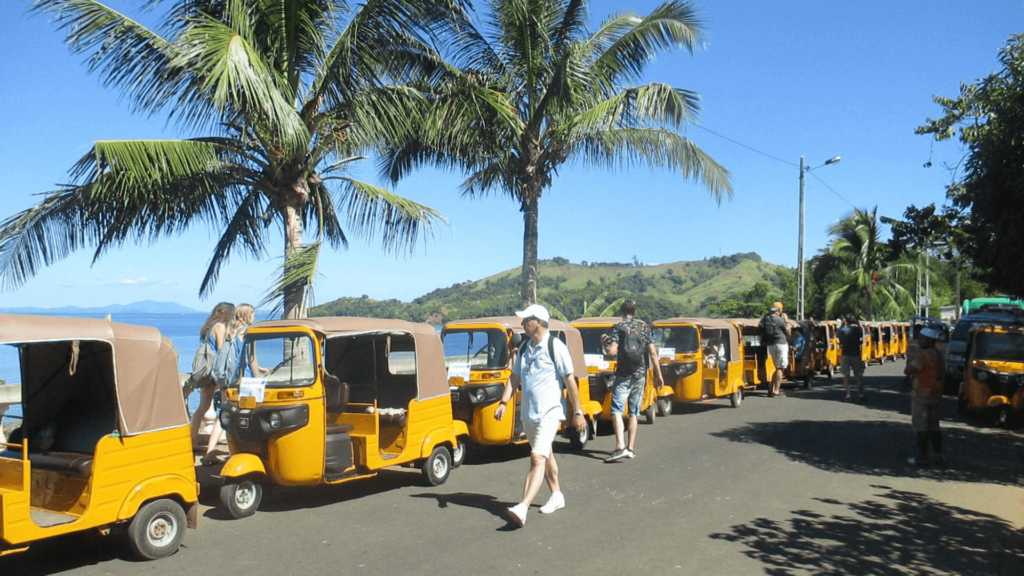The tuk-tuk’s story is fascinating and has diverse origins across the globe. Although the tuk-tuk is most commonly associated with Southeast Asia, its development and adoption in Madagascar also play an interesting role in its history. Here’s a simplified version of the tuk-tuk story….
Origins in Asia
The tuk-tuk traces its roots back to the rickshaw, a human-powered mode of transport that emerged in Japan in the 19th century. Over time, these hand-pulled carts evolved to include motorized versions, giving rise to the concept of the tuk-tuk.
Rise in Southeast Asia
The tuk-tuk gained popularity in the 1950s and 1960s in Thailand. Rickshaw drivers began motorizing their vehicles by adding scooter engines, creating the first tuk-tuks. These compact three-wheeled vehicles were perfect for navigating the congested streets of Asian cities.
Evolution and Adoption in Madagascar
The introduction of the tuk-tuk in Madagascar was a response to local transportation needs. The varied topography and sometimes challenging roads made the tuk-tuk ideal for short and quick journeys. Additionally, its open design proved suitable for the island’s tropical climate.

Social and Economic Impact
Beyond its practicality, the tuk-tuk had a significant impact on the local economy. Many tuk-tuk drivers are independent entrepreneurs who own and operate their vehicles, creating employment opportunities and economic mobility.
The Tuk-Tuk in Madagascar : A Symbol of Conviviality
In Madagascar, the tuk-tuk has become more than just a means of transportation. It has become a symbol of daily life, conviviality, and easy mobility in both urban and rural areas. The vibrant colors and customization of tuk-tuks add a touch of charm and uniqueness to every journey.
Constant Adaptations and Innovations
Over the decades, the tuk-tuk’s design has continued to evolve. Some models now come with more efficient engines and modern features, but the essence of the tuk-tuk—its agility and simplicity—remains unchanged.
Thus, the tuk-tuk’s story is one of innovation, local adaptation, and creative responses to transportation needs in different parts of the world, including Madagascar. Today, the tuk-tuk continues to play an essential role in the daily lives of many communities worldwide.

